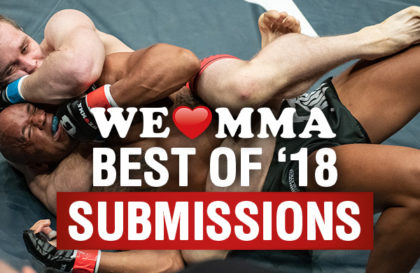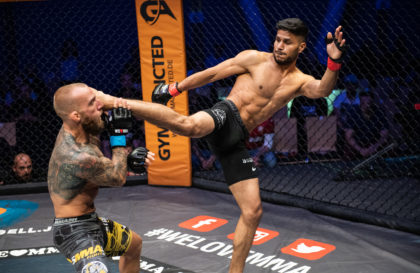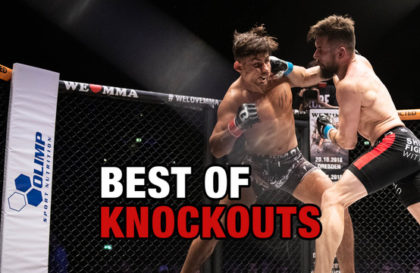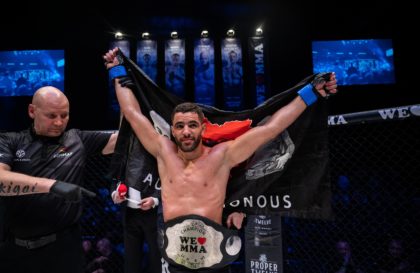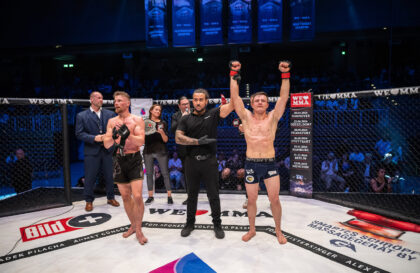Ambassador Richard Grenell on Growing up in a Fighting Family, Sports Diplomacy, and Getting Back to your Feet
Richard Grenell is the Ambassador of the United States to Germany. He hails from Grand Rapids, Michigan and splits his time between Europe and the United States.
How and when did your interest in combat sports begin?
I grew up in a home with two other brothers and wrestled as a kid for five or six years. For those that know the world of wrestling, that means that your weekends are sacrificed for tournaments. It’s pretty intense. I wasn’t very good, but luckily I had a brother who was a fantastic wrestler, so that took much of the pressure off of me. To this day, my family will make fun of how nice I was in my wrestling matches.
My dad was also a Golden Gloves boxing judge in Michigan. I actually had an official role too: I would collect all of the scorecards and give them to the head judge to tally, then run the decision back to the referee to announce. I would always peek; so I would know the decision before anyone besides the Head Judge.
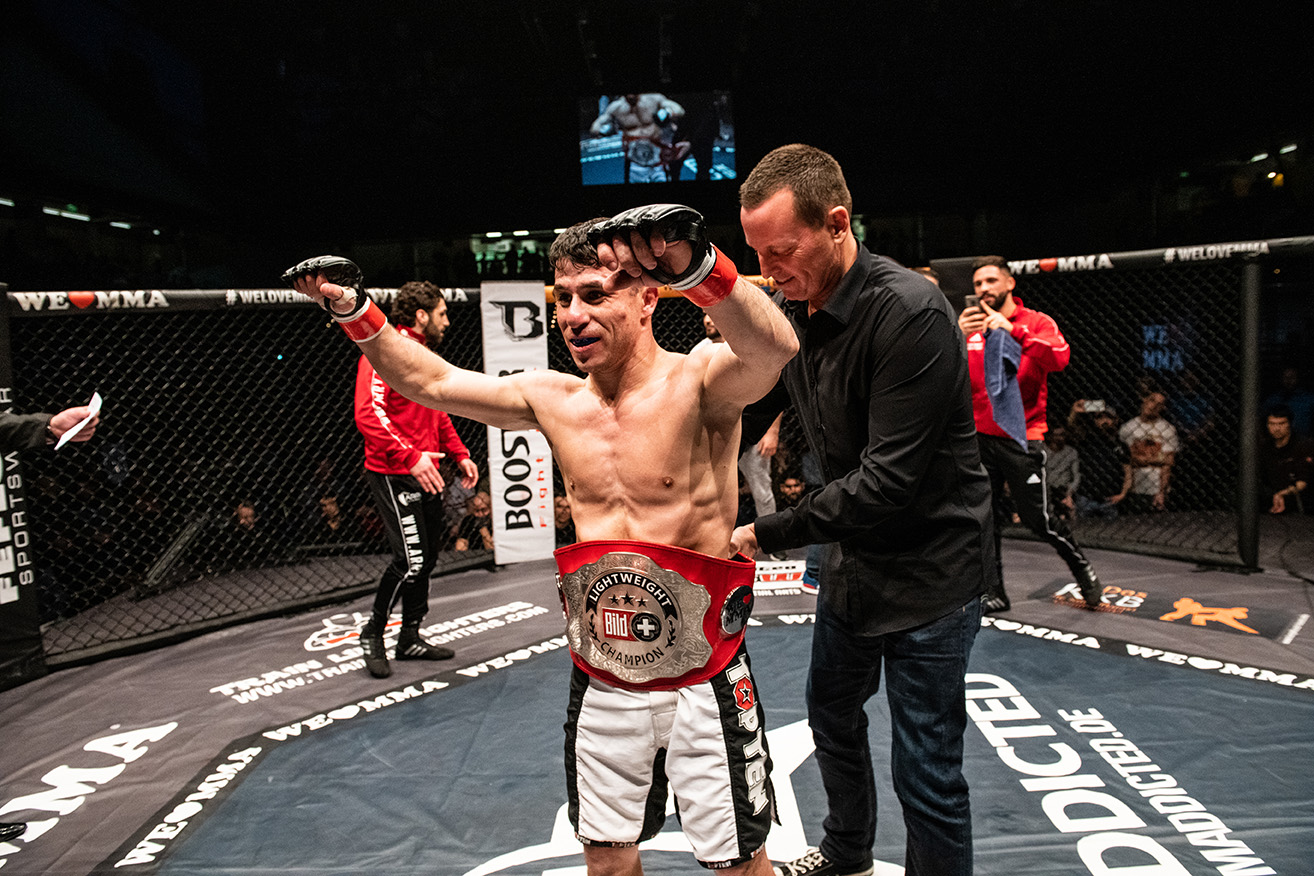
How did competing in wrestling affect you as a child?
A very important lesson I learned from my dad was to never panic. He really drilled this into us. We might have been taken down, we might be on our back, but we have to keep a clear mind and a level head. This would be something I carried with me throughout my life.
How have you applied this lesson to your life?
We all have times that are going to be tough in our day, or month, or year. Maybe it’s a long, tough run or, in business when you don’t meet a goal. I’ve worked in Crisis Communication, political campaigns, and now Diplomacy, and the ability to stay calm is very valuable. Two points in my personal life really tested my ability to stay level-headed come to mind.
The first was growing up in a strong Christian home, and realizing in high school I was gay. This was really difficult and confronting that, almost a “crisis of faith” if you will, makes you feel like you’ve been taken down. But you’ve got to think strategically, you’ve got to realize it’s not over. It’s all about getting up and back on your feet. Another time was when I was diagnosed with Stage 3 Non-Hodgkin’s lymphoma, which is an aggressive form of cancer. You’ve got to think straight. You can’t let emotions take over. You have to go back to your training and know in your mind that you can get the make it through.
This lesson has served me really well and it’s something I’m grateful that my dad instilled in me.
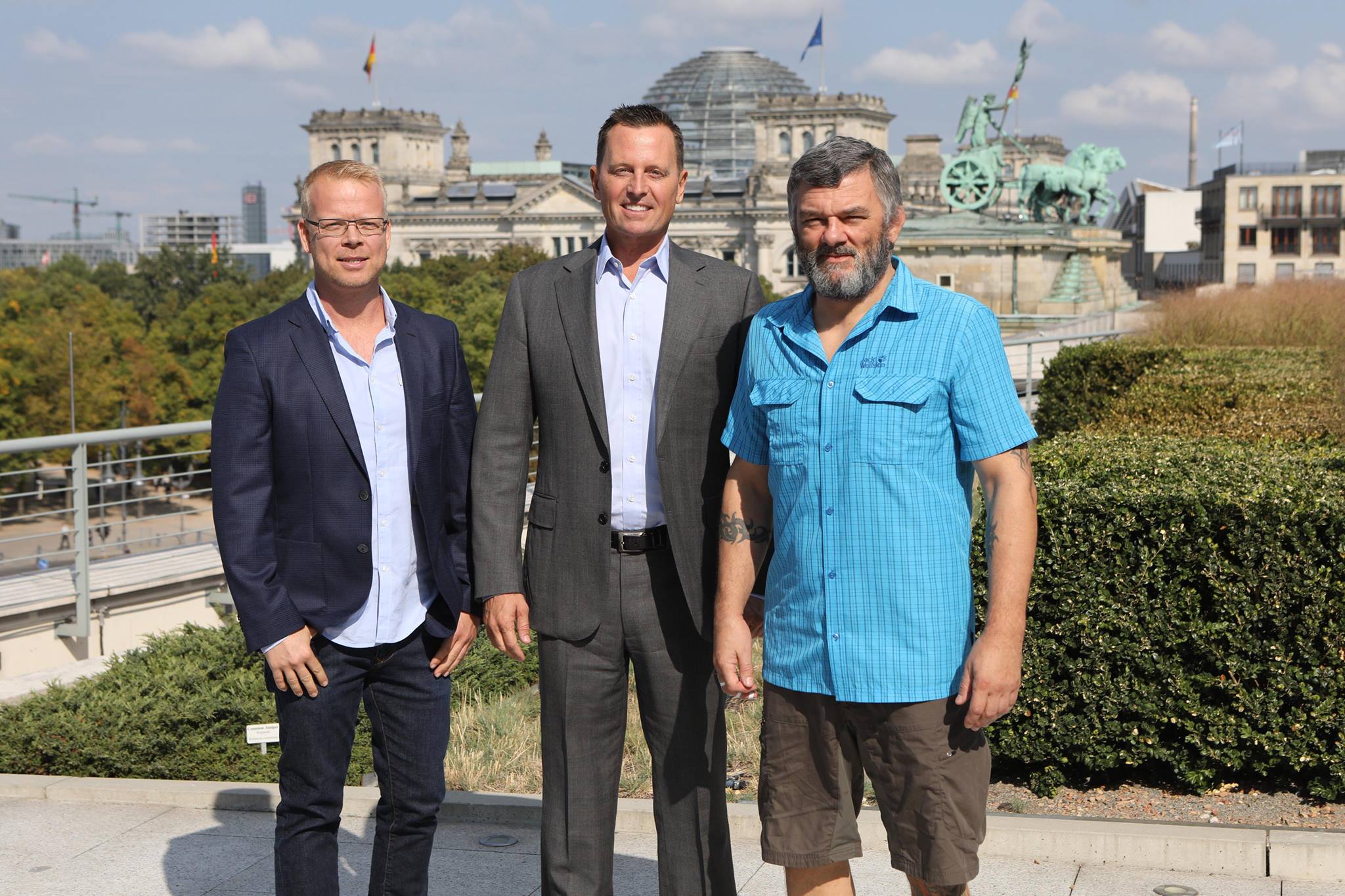
How did that initial interest grow to include MMA?
I’ve always watched sports or events that require something I couldn’t do. I play Tennis regularly and run, but I don’t enjoy watching tennis or running, though they are very difficult sports, because I can do them.
What drew me was the initial impression of the sport. The cocky tough guy wasn’t the winner. The emotional, fiery fighters were the losers. I do remember from my days in boxing: The cocky tough guy brawler-types had 60 to 90 seconds to overpower their opponent, otherwise, they were in for a long night. I came to appreciate the scientific, strategic fighter that could stay calm, weather the initial attack, and think their way through the problem. Both strategies can work, but you can get caught behind the eightball if you don’t think strategically.
As someone that knows about boxing and wrestling, watching MMA came very naturally. I can appreciate the movement and good combination punching from my experience with boxing, and I can also appreciate a really beautiful takedown because I wrestled. I have less technical knowledge on the ground, but I understand how hard it is to control someone from my wrestling days.
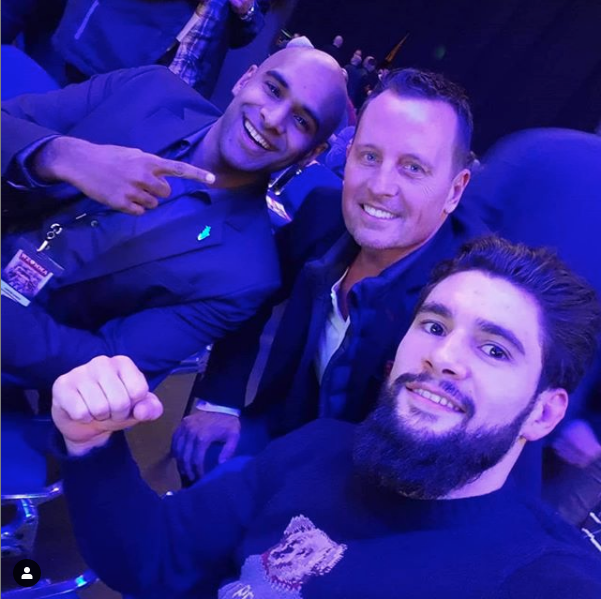
Who are your favorite boxers?
I can’t say I follow Boxing as closely as I once had, but Oscar de la Hoya certainly comes to mind for the long-term strategic thinking he used in his fights. He was also very versatile and could make interesting bouts.
In the late 70s and early 80s, a young family called the “Mayweathers” were making quite an impact on the Michigan Golden Gloves tournaments. The brothers (Floyd Senior, Roger, and Jeff) were competing and coaching in the Michigan Golden Gloves tournaments. So, Floyd Mayweather Junior, though he’s a bit cocky for my taste, for his undeniable skill in the ring and Michigan roots.
Who are your favorite MMA fighters?
A close friend of mine that I hope we’ll be hearing about more is Chris Piriz. He’s from NYC and fights in the regional circuit on the East Coast. He doesn’t fight for the UFC yet, but he’s a great fighter and a great guy.
Cody Garbrandt is another fighter that I like, but I like him because he personifies a real-world struggle of trying to subscribe and follow Christ. I think he’s very authentic. I never blame people for being inconsistent and I often embrace messy inconsistency. In moments where he wants to be contemplative, he lashes out and maybe has to ask for forgiveness and time to reflect. There are times when you get him in a calm situation and he’s really thoughtful. I like to see outbursts because it’s more authentic. The contrived person who is always perfect seems plastic to me.
Well, this might not come as a surprise to you, but I like Colby Covington because I like his politics. And he’s the first UFC fighter to go the White House. I would say that’s pretty exceptional.
And of course, I love (WLMMA’s Middleweight Champion) Dustin Stoltzfus. He’s an American doing well in Germany, and he’s one helluva nice guy.
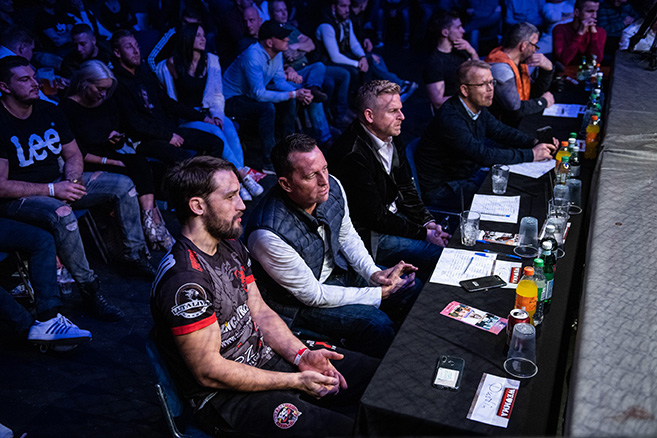
Have you had a chance to speak with Dustin at length and reminisce about home?
We’ve spoken quite a bit, but we tend to talk more about the sport. We also talk about learning the language. I’m really impressed by his ability to speak German so fluently and integrate himself here. He’s very thoughtful and authentic and still embraces his country roots. He has a great energy about him and he’s a fantastic representative for both the US and Germany.
WLMMA will be crowning Bild+ Champions in Dusseldorf and Saarbrucken. As a member of the panel looking for the next Bild+ fighter selection, what were you looking for?
I was looking for authentic stories and people that could grow from this. Someone that could benefit from the things Bild and WLMMA were putting together: The media attention, coaches, and access to new tools in their career. I was also looking for raw talent that needed to be guided. The Iranian fighter Saman Mozafar was especially intriguing to me because he has such a harrowing story. He walked through half a continent and a dozen or so countries to get here. He’s definitely got some inner strength.
In your opinion, what role do sports play in diplomacy? Do you think MMA and combat sports can be leveraged to foster peace?
Sports diplomacy is a way to make both sides to find commonalities in politics and crises. Many times in politics and in conflicts, we try to find ways to disagree and emotions get heightened. With sports, whether you’re from Iran, the US, or Germany, you can be on the same side. If you have so much in common, you can talk to about it, and you’re less likely to focus on divisions.
Can you think of a case in particular that illustrates this?
When I was with the UN, we put together the first program with the NBA to bring all the ambassadors of the security council to an NBA basketball game. It was one of the only times that I saw all of the members of the Security Council getting along in a genuine way. It was because they were talking about basketball, talking about athletes, and they were all bragging about basketball stars from their countries. That pride was unifying.
I think the NBA has done a fantastic job of scouting and finding talents from different countries. That previous example is amplified when you realize you have entire nations supporting, say, San Antonio because they have one player from their country. Sports can be powerful in diplomacy.
Are your peers shocked to hear of you attending these MMA events?
I don’t know. I don’t worry too much about that. The best way to represent your country is through your own talents. I’m cognizant of the many groups I might interact with and I want to be (and I’m aware I overuse this word) authentic. That being said, I do think some of my peers are shocked that I meet with LGBT leaders as frequently as I do. Most other officials meet with LGBT leaders once a year at Pride events and the like, and not consistently.
How might attending MMA events further the mission of the embassy?
I think when you are in diplomacy, you tend to interact with other ambassadors and those on diplomatic missions. There are whole groups of other people that would normally have no opportunity to interact with us. When I go to meetings, events, or dinners. I try asking myself “Who here has never met a US Ambassador before?”.
I extend this for less official occasions too. I can say that through my attending MMA events and reaching out to MMA fans in Germany, 99.9% have never spoken with an American government representative. This is a great opportunity to meet people directly, and leave a good impression of the US. I think as a diplomat, we have to make extra effort to reach new people.
© Rama Reddy


